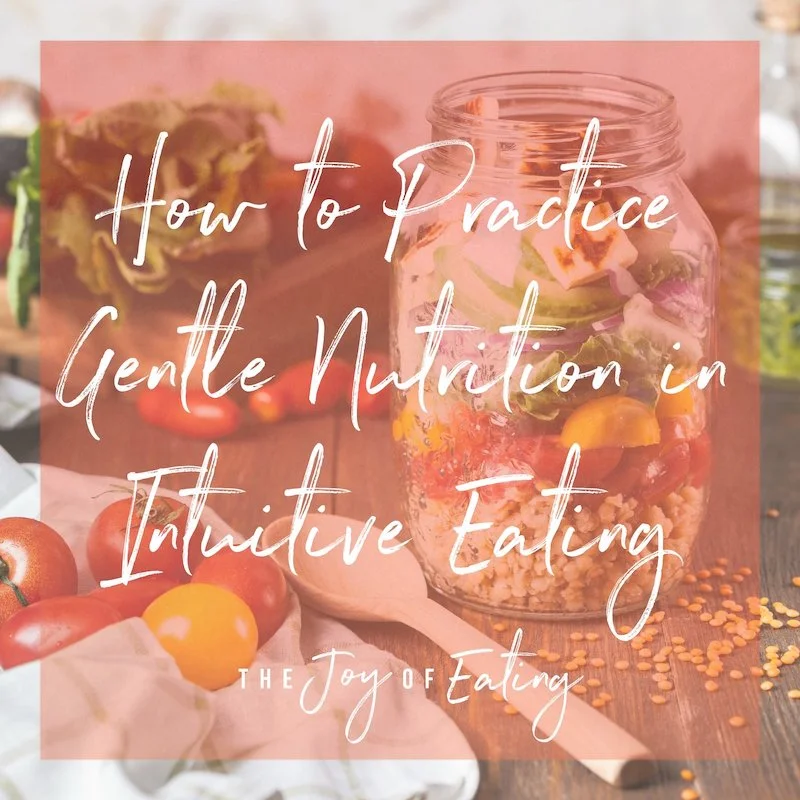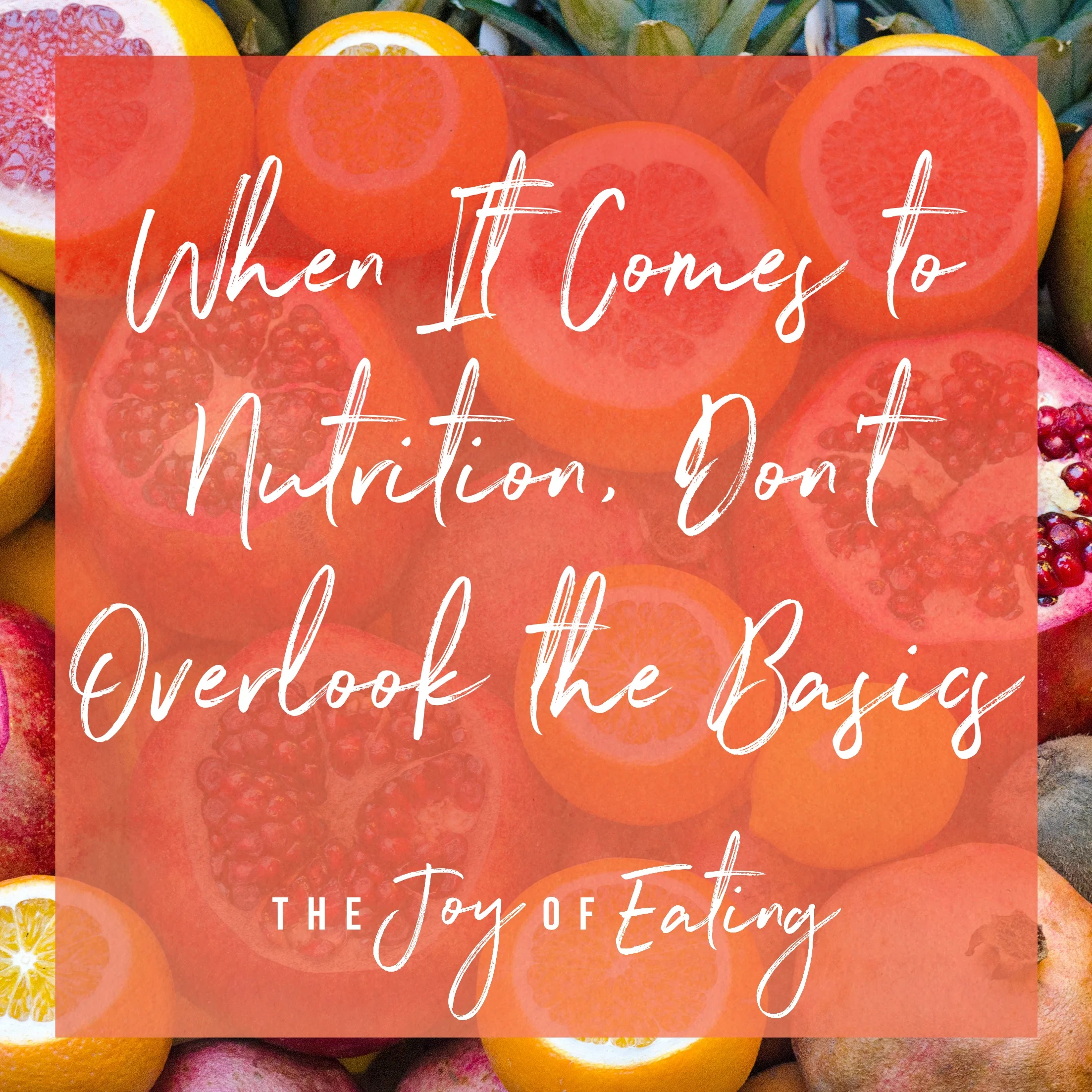Diets to “balance hormones” are the latest trend on social media, and if you’re struggling with a hormonal condition (or symptoms that mimic one!), you might be feeling confused and overwhelmed with everything you’re hearing. This blog post discusses why the restrictive diet advice to heal your hormones can do a lot more harm than good.
Read MoreThere’s a good reason gentle nutrition is the last principle of intuitive eating. Without doing some work to heal your relationship with food, gentle nutrition can easily become yet another a diet. However saving it for last can make it feel like a bit of a mystery. This blog post helps demystify what gentle nutrition looks like so you are able to bring non-diet nutrition into your intuitive eating practice.
Read MoreIn mainstream discourse about food and nutrition, food is often put into binary categories of good and bad, healthy and unhealthy. This blog discusses why you should stop labelling food good and bad and the harms of binary thinking around food.
Read MoreAs a non-diet approach, intuitive eating might seem like it’s not for people with diabetes, a chronic condition that (supposedly) must be managed with a strict diet. While intuitive eating for diabetes might look a little different, it’s still a tool you can use to take some stress out of managing diabetes and to help control blood sugar levels.
Read MoreScared to eat conventional produce after reading about the Dirty Dozen? You’re not alone. The Environmental Working Group’s annual list of fruits and vegetables with the highest and lowest amounts of pesticide is shared in a way that breeds fear and anxiety. Read this post to understand the many problems with the Dirty Dozen.
Read MoreWith the popularity of macro counting, people are more aware than ever of what macronutrients are, yet there is still a lot of misunderstanding about carbs, fat and protein that can make eating stressful. This post answers the question “what are macronutrients” and will hopefully help you feel less stressed knowing how to feed yourself!
Read MoreIntuitive eating isn’t impulsive eating. This blog post explores how you can listen to your body and brain knowledge together in intuitive eating to make intentional choices with food that help you feel good physically and mentally.
Read MoreA common question I get from new intuitive eaters is whether you can practice intuitive eating if you have a food related medical condition. You’ll be happy to learn that the answer is yes! Read on to learn how gentle nutrition and intuitive eating fits with medical nutrition therapy.
Read MoreWhen it comes to nutrition, don’t miss the forest for the trees. This food hierarchy of nutrition needs is a helpful way to frame nutrition in a way where you're not obsessing over the little things, or getting caught up in the diet fad of the day.
Read MoreIf you’ve been diagnosed with diabetes, it might feel like you have to be on a super strict diet for life. In reality, “all food fits” is still true for you. This post explores intuitive eating for diabetes with non-diet nutrition for diabetes management.
Read MoreOne common question I get from readers and clients is should I take supplements? In this post, I’ll dive into the different kinds of supplements, potential risks and benefits, and how to know whether a supplement is helpful for you.
Read MoreA diagnosis of diabetes and intuitive eating may feel like they conflict, especially with all the rigid advice out there. In reality, intuitive eating for diabetes is possible. In this post, learn about why intuitive eating is a natural fit for diabetes management.
Read MoreIs there a nutrient more maligned than carbs? They are essential for health, and a properly functioning brain, but you wouldn’t know it with all the myths about carbs out there! This blog post debunks some of the most common myths about carbs, so you can enjoy bread and pasta without a side of stress.
Read MoreWhen someone finds out I’m a dietitian, one of the first comments I get is “oh, so you tell people what to eat.” In my office, we do a lot more UNLEARNING! There’s so much misinformation out there about nutrition, and that can make eating really stressful, constantly worrying if you’re doing something potentially harmful. In that light, this year for National Nutrition Month I’m busting the most common nutrition myths. In part 1, we’re covering nutrition myths that never seem to die!
Read MoreAt a certain point in your intuitive eating journey, nutrition facts can be helpful, and not harmful. I usually don’t recommend reading the nutrition facts, but it can serve as a source of useful information when the meaning of those numbers is neutralized and detached from trying to manipulate your body size. Learn why nutrition facts are just information.
Read MoreWith all the information about nutrition out there, it’s easy to get stuck in a black hole of research. But before you get wrapped up in supplements and wellness and elimination diets and superfoods, be sure you’re taking care of your body and nourishing yourself adequately. When it comes to nutrition, don’t overlook the basics.
Read More
















